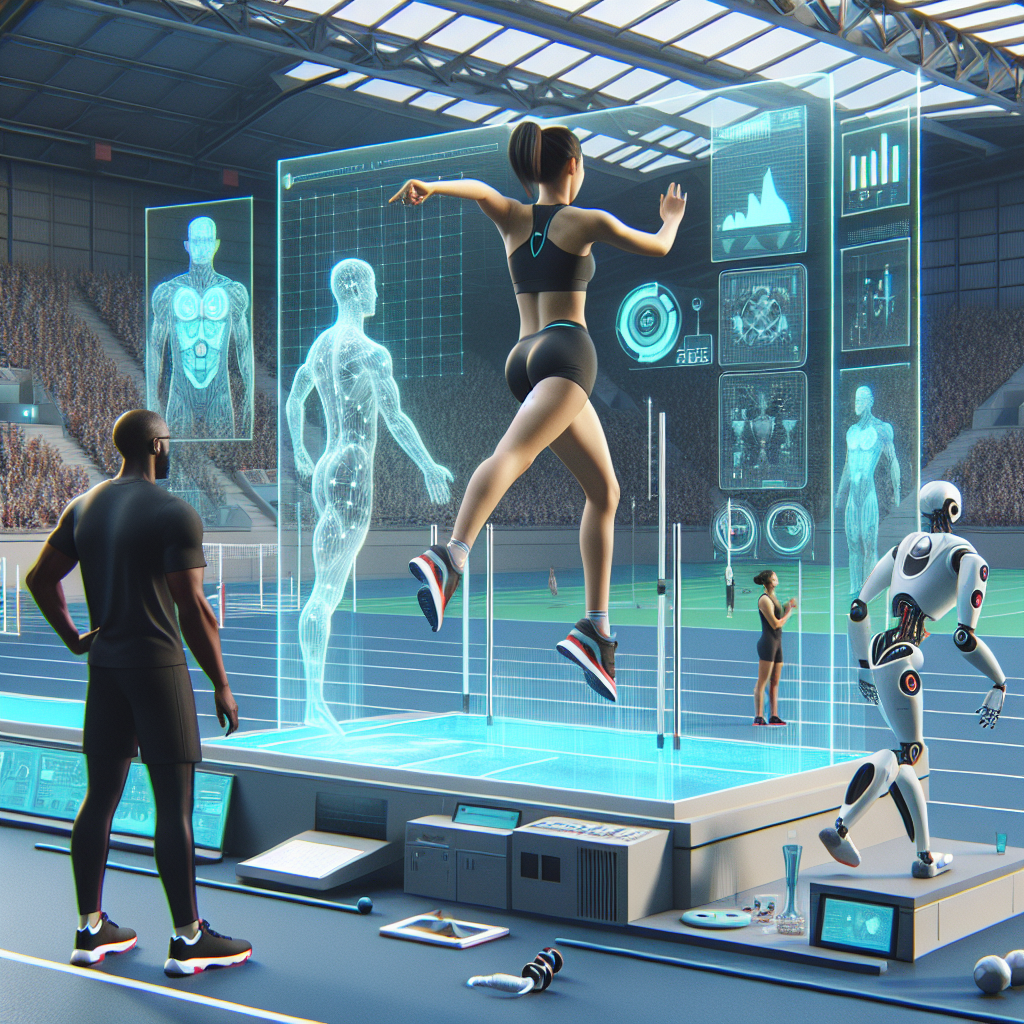Artificial Intelligence (AI) has revolutionized numerous industries in recent years, and sports training is no exception. The use of AI in sports training has fundamentally changed the way athletes prepare for competition, helping them to achieve peak performance levels and push the boundaries of human capability. In this article, we will explore how AI has evolved sports training techniques and discuss the impact it has had on athletes and coaches worldwide.
One of the key benefits of incorporating AI into sports training is the ability to analyze vast amounts of data in real-time. Traditional methods of training often rely on subjective observations and feedback from coaches, which can be limited in scope and accuracy. AI systems, on the other hand, are able to process massive amounts of data from various sources, such as video footage, biometric sensors, and performance metrics, to provide athletes with valuable insights into their performance.
For example, AI-powered video analysis tools can break down an athlete’s technique frame by frame, identifying areas for improvement and suggesting specific drills or exercises to address weaknesses. This level of detailed analysis would be nearly impossible for a human coach to achieve on their own, making AI an invaluable tool for enhancing training efficiency and effectiveness.
Another key advantage of AI in sports training is the ability to personalize training programs based on individual athlete characteristics and needs. By collecting data on an athlete’s biomechanics, physiology, and performance history, AI systems can create customized training plans that target specific areas for improvement and optimize performance gains. This personalized approach allows athletes to focus on their individual strengths and weaknesses, leading to more efficient and effective training outcomes.
In addition to individualized training programs, AI can also be used to simulate game scenarios and provide athletes with real-time feedback on their performance. By using machine learning algorithms to analyze data from past games and training sessions, AI systems can predict future outcomes and help athletes make better decisions on the field or court. This real-time feedback loop enables athletes to adjust their strategies and tactics on the fly, improving their overall performance and competitive edge.
Furthermore, AI can help coaches and trainers track athlete progress over time and make data-driven decisions about training strategies and interventions. By analyzing trends in performance metrics and identifying patterns of improvement or stagnation, AI systems can provide valuable insights into the effectiveness of training programs and help coaches adjust their approach accordingly. This data-driven approach to training not only maximizes athlete potential but also minimizes the risk of injury and burnout by optimizing workload and recovery strategies.
The integration of AI into sports training has also paved the way for advancements in sports science and technology. By leveraging AI to analyze complex data sets and develop predictive models, researchers and sports scientists can gain a deeper understanding of human performance and develop innovative training techniques to push the boundaries of athletic achievement. For example, AI-powered biometric sensors can track physiological markers such as heart rate, oxygen consumption, and muscle activation in real-time, providing valuable insights into an athlete’s physical condition and performance capacity.
Moreover, AI can be used to enhance the efficiency of sports equipment design and development. By simulating the performance of different equipment configurations and materials using AI algorithms, manufacturers can optimize product design and create gear that maximizes athlete comfort, safety, and performance. This level of customization and precision would be impossible without AI, making it an essential tool for driving innovation in sports equipment technology.
Overall, the integration of AI into sports training has transformed the way athletes prepare for competition, enabling them to achieve new levels of performance and push the boundaries of human capability. By leveraging AI to analyze data, personalize training programs, provide real-time feedback, and drive innovation in sports science and technology, athletes and coaches can unlock new possibilities for success on and off the field.
FAQs
Q: How does AI help athletes improve their performance?
A: AI helps athletes improve their performance by analyzing vast amounts of data in real-time, providing personalized training programs, simulating game scenarios, and offering real-time feedback on performance. By leveraging AI to optimize training strategies and interventions, athletes can maximize their potential and achieve peak performance levels.
Q: Can AI predict future outcomes in sports?
A: Yes, AI can predict future outcomes in sports by analyzing data from past games and training sessions, identifying patterns and trends, and developing predictive models. By using machine learning algorithms to simulate game scenarios and provide real-time feedback, AI systems can help athletes make better decisions on the field or court and improve their overall performance.
Q: How does AI impact sports science and technology?
A: AI impacts sports science and technology by driving innovation in equipment design and development, enhancing the efficiency of training programs, and advancing research in human performance. By leveraging AI to analyze complex data sets and develop predictive models, researchers and sports scientists can gain a deeper understanding of athletic achievement and develop innovative training techniques to push the boundaries of human capability.

